Most Innovative CRE Executives
There are those in the commercial real estate industry that apply the combination of risk-taking and creativity in ways that have a more far-reaching effect, advancing their business and perhaps the industry at large.
Throughout history, innovation has led the world forward—with the explorers, the inventors, the theorists taking risks as they carved new paths and experimented with new products or ideas, often bucking trends and swimming against the tide. Without original thought, we wouldn’t have the telephone, the airplane, the computer. And while not every effort today results in a Google or a Microsoft or a Disney, creativity comes in all sorts of packages and contributes to the progress of any industry or community. Risk-taking is prevalent in the commercial real estate industry, creativity a word often paired with dealmaking. But there are those in the industry that apply the combination of risk-taking and creativity in ways that have a more far-reaching effect, advancing their business and perhaps the industry at large. Following are a baker’s dozen such innovators, whose experimentation is worth watching.
Bill Bayless
President & CEO, American Campus Communities
Student housing has made a play to be taken seriously as a real estate investment sector in the last decade, and American Campus Communities, the nation’s first publicly traded student housing REIT, has been the trailblazer.
From a small, privately held firm to its IPO in 2004 and its ranking as the country’s largest student housing provider today, ACC has acquired or developed 163 student housing properties totaling 102,800 beds and valued at $7.8 billion. Prior to the IPO, the company was valued at $351 million and held 16 properties totaling 11,800 beds. Between August 2004 and August 2014, it delivered a shareholder return of 240 percent.
Convincing investors that student housing can be a safe, serious and worthwhile investment has been a mission for ACC president & CEO Bill Bayless. As he told CPE recently: “We had to overcome a lot of stereotypes. We educated Wall Street and educated capital. Students have modern needs that need to be addressed.”
Bayless traces his involvement in the sector back to his days as a resident assistant at West Virginia University. Along the way, he’s been pragmatically innovative, fostering public-private partnerships that are vital to student housing success. Starting with a project on the campus of Arizona State University in 2006, ACC has developed $1.2 billion in on-campus housing, a total of 21 communities with 15,630 beds.
Under his leadership, the company has taken a holistic look at what the student housing experience means to the resident—the college student—and the renter—who is often the student’s parent. ACC communities focus on providing a well-rounded residential experience, with a focus on quality of life at an affordable price.
Common amenities include resort-style swimming pools, game rooms, luxury finishes and native Wifi networks. The company is committed to green development and has more than a dozen LEED-certified projects within its portfolio. Pricing is per bed and based on a unit type, in order to accommodate students with varying financial situations. —Leah Etling
Conor Flynn
President, COO & Chief Investment Officer, Kimco Realty Corp.
To say that Conor Flynn knows how to execute plans to keep Kimco Realty Corp. at the top of its game is an understatement, as his swift ascendancy at the shopping center REIT illustrates. Flynn started there as an asset manager, and is now in line to become CEO in 2016. He’s been instrumental in facilitating more than a few novel initiatives, and the Kimco Entrepreneurs Year Start program is one of them.
Launched in 2012, KEYS is an incubator program designed to help hopeful entrepreneurs seeking to open their first retail destination. In essence, it provides the keys to success by offering one year of free rent for a new concept store at a Kimco shopping center, cost-effective property charges and access to Kimco business counselors. If the startup is positioned to continue operating after one year, Kimco provides an option for a flexible four-year lease agreement. Currently, the KEYS program is in place at a number of Kimco properties in 15 states, and more than 50 percent of KEYS participants have exercised their lease option. A new company gets a helping hand; shoppers get a new retail experience; local residents get additional job opportunities; and Kimco gets a potential long-term tenant, with hopes of expansion to other Kimco locations.
More recently, Kimco kicked off LABS: Leaders Advancing Business Strategy. Launched last year, it culled 20 associates from different internal business groups to participate in teams of five, with the goal of generating new ideas for the company’s future growth or improvement. It’s an eight-month Shark Tank-esque venture that culminates with the four teams presenting their business plans to a panel of Kimco executives and leaders.
In this inaugural round, all proposed projects have been given the thumbs up, and implementation is currently in the works.
Flynn has a host of other initiatives underway, too, though he declined to provide details, terming them proprietary. But he observed, “If we can push people to do things a little better, that’s what we should do.”
—Barbra Murray
J. Michael Fried
Founder & CEO, Phoenix Realty Group
Can you strike gold twice? It appears Michael Fried has done just that. In 1999, 20 years after establishing real estate financial services firm Related Capital (later Centerline Capital Group and now Hunt Mortgage Capital) and transforming it into a leading subsidized housing-focused enterprise, Fried walked away and launched Phoenix Realty Group. It would become another billion-dollar real estate company.
Today, PRG manages nearly $1.4 billion in assets and has made enviable strides in its evolved strategy of targeting a very large yet oft-overlooked segment of the housing population: the middle-market renter in principal urban and suburban locations. A few years ago, Fried and his partners began to move the company from a range of focuses including market-rate housing and Low Income Housing Tax Credit-developed properties to purchasing underperforming Class B and C market-rate properties occupied by the workforce and making substantial improvements that benefit both the tenant and PRG. The company has amassed a portfolio of some 8,000 units, “reimagining not what they are but what they can be.”
The occupants get a notably upgraded environment, and PRG gets increased cash flow and returns through higher rents—all while maintaining affordability for the middle-income residents. Fried led just such a transformation of a 1970s-era multi-family property in Long Beach, Calif. PRG restored its façade to the original midcentury look and transformed underutilized space into a lounge and recreation center. And, in a key move it frequently makes, PRG added a fitness center with state-of-the-art equipment, allowing tenants to surrender their off-premises gym memberships and apply the savings to the increased rent. Effectively, the tenants don’t feel the increase in rent and PRG sees higher returns.
“It’s kind of a trite statement, but we’re doing well financially and we’re doing good, and that’s a good feeling. We’re not building the highest-end condos in Manhattan and trying to sell to a foreign marketplace, but we’re trying to improve American real estate for an American workforce that needs good housing,” Fried added.
—Barbra Murray
Dan Gilbert
Founder & Chairman of Rock Ventures and Quicken Loans
To get an overview of Dan Gilbert’s personal brand of innovation, you don’t have to travel to downtown Detroit. Just log onto Twitter and check out @cavsdan, his authenticated account. Gilbert, who is the majority owner of the Cleveland Cavaliers in addition to his significant commercial real estate investment in Detroit, tweets on the game-changing ventures that occupy his days.
Many CEOs shy away from Twitter, or have their accounts carefully crafted by public relations specialists. Gilbert’s is personally authored and reflects his passions: His NBA basketball team, alma mater Michigan State, his family and the renaissance of downtown Detroit are all front and center.
He used Twitter to announce that one of his Rock Ventures subsidiaries would soon bring high-speed Internet to downtown Detroit, calling the Rocket Fiber service “fast as Google or faster.” He’s also tweeted about job opportunities at Quicken Loans, high-profile new commercial tenants in his refurbished Detroit buildings and charity benefits for Motor City residents.
Gilbert wasn’t available to comment for this piece, but his extensive investment in Detroit has been heralded by observers as one of the primary drivers behind the city’s continuing economic recovery. Bedrock Properties, another Rock Ventures company, has invested more than $1.5 billion in 70 downtown real estate assets. As this story went to press, Rock Ventures had snapped up One Detroit Center, the second-largest property in its portfolio, for around $100 million.
“Dan Gilbert doesn’t need a political title; elected office could hardly augment his financial influence over Detroit,” wrote Tim Alberta of the National Journal. “Gilbert has established himself as Detroit’s de facto CEO.”
In 2013, Gilbert told The New York Times he thought it would take about five years before downtown Detroit began to resemble the thriving, pedestrian-centric commercial district of its heyday, a half century past. That means he’s now three years away from his stated goal. With ongoing innovative news like the M-1 light rail (Gilbert supported the project and serves on its board), Rocket Fiber and splashy new retail openings on Woodward Avenue, he has plenty to tweet about. —Leah Etling
Barry Gosin, CEO
James Kuhn, President, Newmark Grubb Knight Frank
Some people know how to take a vision and make it happen. James Kuhn and Barry Gosin have been working magic together since Kuhn joined Gosin at Newmark & Co. in 1992. Fast forward to 2005, when they orchestrated a partnership that created Newmark Knight Frank, giving it a global footprint with combined annual transactions valued at roughly $40 billion and revenues exceeding $1 billion. But Gosin and Kuhn wanted to grow still further; well aware that big capital would be required to finance their big plans, they arranged an acquisition by global financial services behemoth BGC Partners Inc. to purchase Newmark Knight Frank in 2011. It was no simple feat, although Gosin’s history with BGC—as a board member of the company’s predecessor, eSpeed Inc.—opened the door.
The two continue to draw on their industry contacts as they acquire and recruit in an ongoing effort to expand what became Newmark Grubb Knight Frank the following year, when BGC acquired and merged in real estate services firm Grubb & Ellis Co. Among Gosin and Kuhn’s recent big moves was the December 2014 acquisition of Apartment Realty Advisors, the nation’s largest privately held, full-service multi-family investment brokerage network. ARA recorded an annual production volume of more than $12.3 billion in sales last year, and its purchase dovetails with NGKF’s focus on increasing its capital markets business, a goal that the firm is also pursuing through organic growth. Over the last five years, NGKF has grown from 50 capital markets brokers to 300. Gosin and Kuhn have made the debt and equity business an extension of the brokerage business, and have hired five debt-and-equity teams around the country in the past 12 months.
Numbers, however, are just part of the plan. As NGKF grows, Gosin and Kuhn are careful to keep an eye on an all-important factor: change in the industry. The need for corporate services is on the rise. “We have an incredibly large and robust consulting division that guides and makes certain that companies align their execution of a real estate strategy in connection with their business objectives. So our efforts are around operational efficiencies, workplace, workflow, labor and a host of things that are way more than just real estate,” Gosin said.
But perhaps the most prominent changes, Kuhn added, are growth in the TAMI (technology, advertising, media and information) sector and the globalization of the real estate services business. “How does a 2,000-square-foot startup become a 200,000-square-foot tenant? You need to go in and figure out where your clients are coming from and how you capture them early in the cycle. And the same thing with the foreign investors: You want to get them when they’re thinking of coming here, not after they come here. So technology and globalization to me are the two key ingredients today in watching your client base as a multidimensional brokerage firm.” —Barbra Murray
Ada Healey
Vice President of Real Estate, Vulcan Inc.
In Seattle’s rejuvenated South Lake Union neighborhood, innovation comes in all shapes and sizes. A unique mix of businesses, focus on walkability, sustainable development and unusual transportation are all part of the mix. But one piece that really stands out? The bioswales.
“It’s a landscaped ditch that’s super innovative in terms of helping us clean our water,” explained Ada Healey, vice president of Microsoft Corp. co-founder Paul Allen’s Vulcan Inc. “When our final two swales are completed, they will passively clean 190 million gallons of storm water runoff from Capitol Hill (a neighboring residential district) before it runs into Lake Union.”
It’s likely the largest swale project in the nation, and illustrates how Allen, Healey and the Vulcan team have focused on the big picture in South Lake Union, a redevelopment effort they’ve been working on for the past seven years. Vulcan owns 5.3 million square feet of real estate in the historic neighborhood, spread across 60 acres, and has about 1 million square feet in development. It comprises the bulk of the $2 billion in real estate assets Healey oversees for Vulcan.
Healy identifies the significant public-private partnership effort that has shaped the South Lake Union project as an innovation enabler. Working with local government helped make the city’s modern streetcar system possible, with its first line in South Lake Union. It also fostered the development of parks, roadway improvements and pedestrian access.
But she shies away from labeling herself innovative. “I try to make good decisions and be collaborative, and work very extensively with my group, our community and our elected officials.”
An East Coast native with a global real estate background and a decade of experience with ING Clarion before joining Vulcan in 2002, Healey credits Allen with being the innovative force behind the company. He credits her with executing the vision.
“Ada has been able to get many different people and groups working together, planning far ahead and embracing a new neighborhood,” Allen told a writer for the Seattle Times. “Anyone who has seen the South Lake Union recently knows the results speak for themselves.” —Leah Etling
Terri Ludwig
President & CEO, Enterprise Community Partners
With so much to be done in the creation and rehabilitation of affordable housing, Terri Ludwig has stayed busy since joining Enterprise Community Partners as executive vice president & COO in 2009. She is adept at not only creating new programs but upgrading existing ones, like the organization’s performance-based Pay for Success (PFS) products.
Earlier this year, working with the county of Cuyahoga, Ohio, Ludwig spearheaded the initiation of the five-year Partnering for Family Success Program, the first county-level PFS program and the first such program to unite the issues of homelessness and child welfare. The program unites a variety of partners to fund an intervention that ensures homeless parents get housing and both they and their children receive comprehensive services, thereby reuniting the family in a home setting and keeping the children out of foster care. An added bonus of Partnering for Family Success is the cost savings for the social system. The program endeavors to assist 135 families.
Ludwig has also been instrumental in furthering such longstanding Enterprise initiatives as Enterprise Green Communities, a decade-old program designed to help affordable-housing developers and investors make sustainable development and green practices universal in the low-income housing sector. Last month, Enterprise announced the launch of the 2015 Enterprise Green Communities Criteria, a comprehensive framework for building healthier and more sustainable affordable homes.
“With this latest 2015 criteria, we want to really make sure that we’re recognizing the health benefits, environmental benefits and cost benefits of greening for owners and residents, and then, of course, the importance of reducing energy and water consumption for climate change,” Ludwig said. Formed with the input of developers, public sector agencies and other partners, the new criteria cover changes in the areas of integrative design; location and neighborhood fabric; site improvements; water conservation; energy efficiency; materials; healthy living environment; and operations, maintenance and resident engagement.
—Barbra Murray
Chris Merrill
President & CEO, Harrison Street Real Estate Capital
Chris Merrill, co-founder, president & CEO of Chicago-based Harrison Street Real Estate Capital L.L.C., has a strong point of view on the meaning of the word “innovation.”
“If you are not creating the new, you can’t call yourself an innovator. It does amaze me how many firms throw the word ‘innovation’ around yet are doing nothing new,” Merrill said.
He’s able to back his statements with his resume. Harrison Street Capital is a real estate private equity firm that has completed more than $10 billion in transactional volume, with significant investment in unique products. Harrison Street was among the first investors to grasp the potential of several product categories that are now widely popular: student housing, senior living, self storage and medical office.
“We are probably the largest private equity investor focused exclusively in the education, healthcare and storage segments of the markets. I have worked hard to develop investment products that offer the ability to be the first of their kinds while seeking compelling risk-adjusted returns through the finding of areas in which an arbitrage may exist,” he said.
Harrison Street has a series of discretionary, commingled real estate funds, including an opportunistic closed-end fund series and an open-end real estate fund, that have raised more than $5 billion in discretionary equity capital. The company manages investments for more than 150 institutional clients, including retirement funds, insurance companies, foundations, endowments and high-net-worth individuals.
Merrill is also on the board and a controlling principal of Harrison Street Securities L.L.C., a registered investment advisor that currently manages approximately $800 million in REIT securities.
Prior to founding Harrison Street, Merrill was a partner, owner and managing director of a U.S. pension fund advisory firm, where he created the first-ever real estate funds exclusively targeting the markets of Central Europe. At the time, that was also an innovative proposition.
“While being first can seem more risky, if you have the right strategy, team and a patient business model, it actually offers a less risky proposition to all stakeholders,” he said. —Leah Etling
Benjamin Miller, Co-founder & CEO
Daniel Miller, Co-founder & President, Fundrise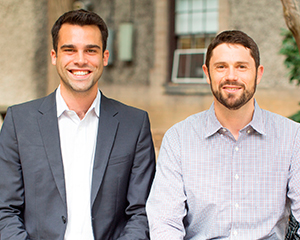
It’s a rare occasion that a company can claim to be the original, but Fundrise can, and it’s all thanks to co-founders Ben and Dan Miller. The brothers, 11 years apart, launched Fundrise in 2012, establishing the first company in the U.S. to offer equity crowdfunding for real estate. There’s since been no stopping the Millers.
Fundrise’s premise is a simple but brilliant one. With as little as $100 and a mobile device, just about any person walking down the street can invest in the local community by buying an ownership stake in a real estate project. Not that Fundrise discriminates; high-net-worth individuals and entities are welcome, too. The premise has caught on like wildfire—Fundrise now boasts more than 44,500 investment members, and nearly 700 real estate companies are using the network to source capital. If there were any rumblings about Fundrise’s legitimacy or viability, they were likely quieted for good when the company raised in excess of $31 million in financing from a consortium involving the likes of China’s leading social networking platform, RenRen Inc., and the CEO and chief investment officer of renowned real estate investment and development firm Silverstein Properties.
By the close of 2014, the company had raised a total of $40 million; in 2015, the brothers expect to reach $100 million as the company expands its offerings to new markets across the country, more often than not providing the first commercial real estate crowdsourcing opportunity for the locals.
This year, Ben and Dan have already given further evidence that their penchant for breaking new ground is not a passing trend. In January, Fundrise began offering individual investors willing to part with as little as $5,000 the opportunity to own a stake in Silverstein Properties’ 2.5 million-square-foot 3 World Trade Center office skyscraper development.
The Fundrise commercial real estate crowdfunding platform is a winner, but the Millers wouldn’t be trailblazers if they were content to leave well enough alone. Late last year, Fundrise announced that it had begun pre-funding all deals up front. —Barbra Murray
Mark Rose
CEO, Avison Young
Grow at the speed of light. That appears to be Mark Rose’s plan for Avison Young, and it seems to be working: Avison Young has evolved from 11 offices to 66 in the past six years, with much of its growth centering on the U.S. Since kicking off the firm’s aggressive stateside expansion plan with the launching of an office in Chicago in 2009, Rose has steadily increased the 37-year-old company’s presence south of its border with the creation of new offices and the acquisition of existing firms at a pace that ensures that nary a month passes without an announcement.
He recently went global with Avison Young’s successful principal-managed model, in which the principals own the business. In 2014, the company ventured outside North America for the first time, establishing a presence in Europe with the acquisition of London-based commercial real estate services firm Haywards L.L.P., and opening new offices in London and Thames Valley in the U.K. Late last year, Rose led the company to Germany, with the debut of a location in Frankfurt, and followed that with the opening of an office in Munich earlier this year. As for upcoming moves, Rose plans to continue to be strategic and opportunistic in his expansion endeavors.
However, Rose’s focus is not only on establishing new offices and acquiring firms that are leaders in their respective markets; he’s just as intent on tapping the best of the best individuals in the industry to lead the ever-growing list of Avison Young locations. Rose centers the company’s expansion on people as much as he does on demand. The firm’s roster of professionals, like its list of locations, has grown approximately sixfold since 2009. Rose claims the company, which is highly selective when it comes to bringing new executives on board, continues to be the platform of choice for top professionals, as the only private, principal-led, global, full-service, collaborative platform in the industry.
The growth continues: At press time in late April, Avison Young had just purchased another Chicago business: Mesa Development L.L.C., which specializes in urban, mixed-use projects. The month before, it opened offices in Minneapolis-St. Paul and in Dusseldorf, Germany. —Barbra Murray
David Simon
CEO, Simon Property Group
Simon Property Group’s bid to acquire rival mall developer The Macerich Co. may not have succeeded the first time around, but industry analysts say it’s unlikely the two March offers from CEO David Simon’s REIT, the largest mall and outlet holder in the nation, are the last.
Simon is known for his tenacity and ability to think strategically on a grand scale, leading to moves like the offer for Macerich and the spinoff of 80 of his company’s 308 properties into Washington Prime Group in May 2014. In the face of gloom-and-doom predictions for walk-in retail experiences as shoppers embrace online buying, SPG is thriving, boasting healthy rental income growth, strong occupancy and fancy property remodels.
Simon wasn’t available to be interviewed by CPE, but has personally battled back against the “dying shopping mall” storyline in the business press. Throughout the last year, he has been frequently quoted heralding the ability of malls and outlet centers to transition with the changing times, touting the company’s investor returns as evidence.
“We have to make the mall experience a better experience for the consumer,” Simon said at an ICSC event last May. Undertaking innovative projects and strategic acquisitions are among his ways of delivering that.
SPG has jumped with both feet into social media and web-based efforts to engage, attract and retain shoppers. The mixed-media “LOOKBOOK Live” campaign, in coordination with Glamour and GQ magazines, pushes shoppers from using hashtags at home to attending in-person events at Simon properties nationwide. The company also co-sponsored a retail innovation contest at SXSW this spring, awarding a standout “disruptor” a $5,000 first prize.
With a strong grasp on Millennial trendlines and consistent improvement of the on-site shopping experience, SPG’s trajectory is influenced by its CEO’s future-focused outlook. As he looks to continue to expand and enhance investor returns, expect more innovation at every turn. —Leah Etling


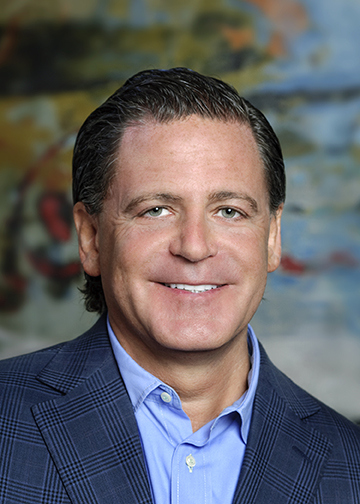
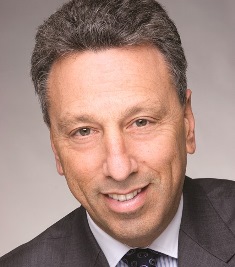
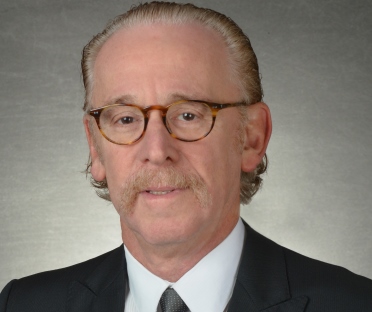
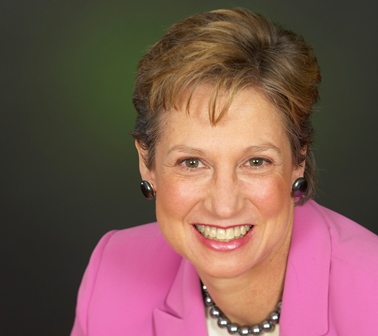
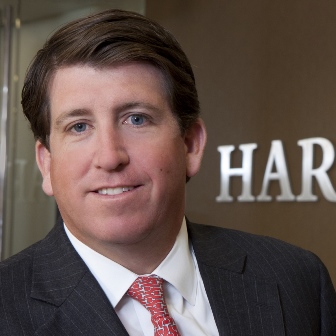
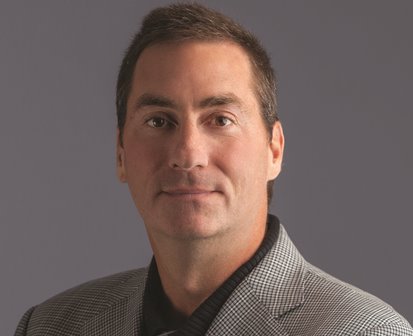




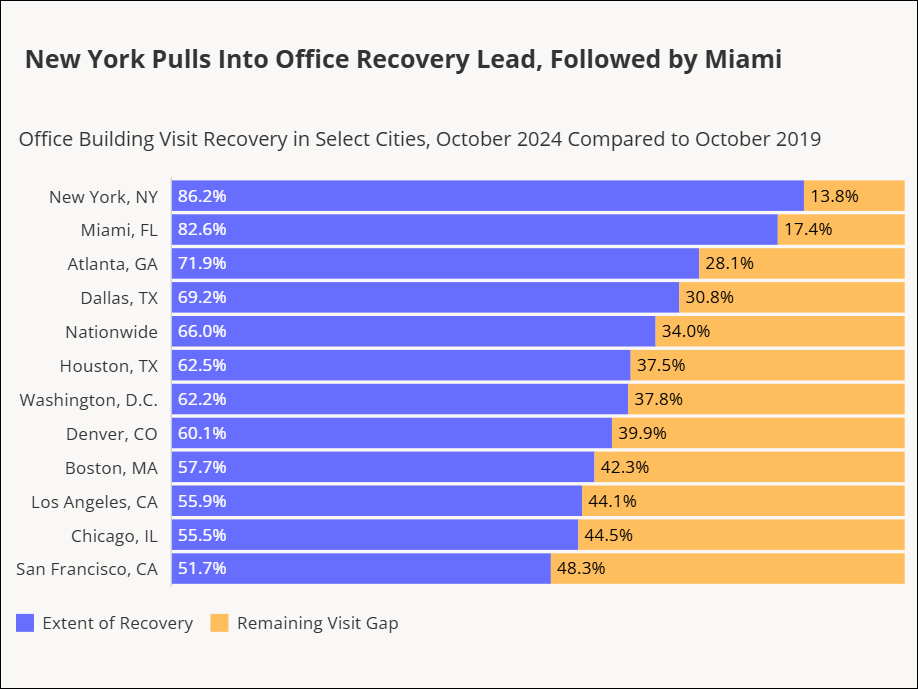


You must be logged in to post a comment.